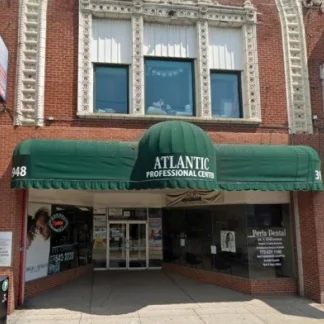WestCare - Cook County Jail IMPACT Program
WestCare - Cook County Jail IMPACT Program is a therapeutic community that provi...
Access Behavioral Services is dedicated to provide outpatient services for individuals struggling with substance abuse. Services include aftercare services, DUI services and anger management. Access Behavioral Services is located at Chicago, Illinois.
Access Behavioral Services’s mission is to inspire change through the delivery of effective services that promote education, public policy and community empowerment. They provide substance abuse services and empower clients to make positive changes in their lives.
They are certified and licensed to provide substance abuse counseling, anger management, gender specific services, bilingual services and dually diagnosed counseling.
Their services include alcohol and drug assessments and recommendations, monthly case status reports, risk education, DUI services, substance abuse treatment, aftercare services, toxicology testing, alco-meter reading (BAC test), parenting, anger management, light case management and DUI evaluations.
Contact us for more information: (773) 522-5460

Connect with Access Behavioral Services by calling their admissions team directly.
(773) 522-5460 Website Get DirectionsGroup therapy is any therapeutic work that happens in a group (not one-on-one). There are a number of different group therapy modalities, including support groups, experiential therapy, psycho-education, and more. Group therapy involves treatment as well as processing interaction between group members.
In individual therapy, a patient meets one-on-one with a trained psychologist or counselor. Therapy is a pivotal part of effective substance abuse treatment, as it often covers root causes of addiction, including challenges faced by the patient in their social, family, and work/school life.
In individual therapy, a patient meets one-on-one with a trained psychologist or counselor. Therapy is a pivotal part of effective substance abuse treatment, as it often covers root causes of addiction, including challenges faced by the patient in their social, family, and work/school life.
WestCare - Cook County Jail IMPACT Program is a therapeutic community that provi...
Above and Beyond Family Recovery Center is a licensed Level I and Level II outpa...
McDermott Center – Men’s Detox is a non-profit rehab located in Chicago, Illinoi...
A Safe Haven is a non-profit rehab located in Chicago, Illinois. A Safe Haven sp...